Last year, commercial air passenger traffic saw a surge of over 30%, while revenue soared by 50% compared to 2021, with Europe and Asia ex-China showing remarkable gains.
That’s according to IdeaWorks’ latest report on airline ancillary revenue in 2022, which shows that with an increase in traffic came a rise in sales for non-ticket services. Crowded airports and planes nudged passengers to pay more for comforts like extra legroom, preferred seating, early boarding, checked luggage, priority screening and more. Low-cost carriers (LLCs) took the lead, underscoring the resilience of the à la carte model and its growing acceptance among consumers.
Below are the top 10 airlines, in descending order, based on ancillary revenues they collected per passenger.
10.
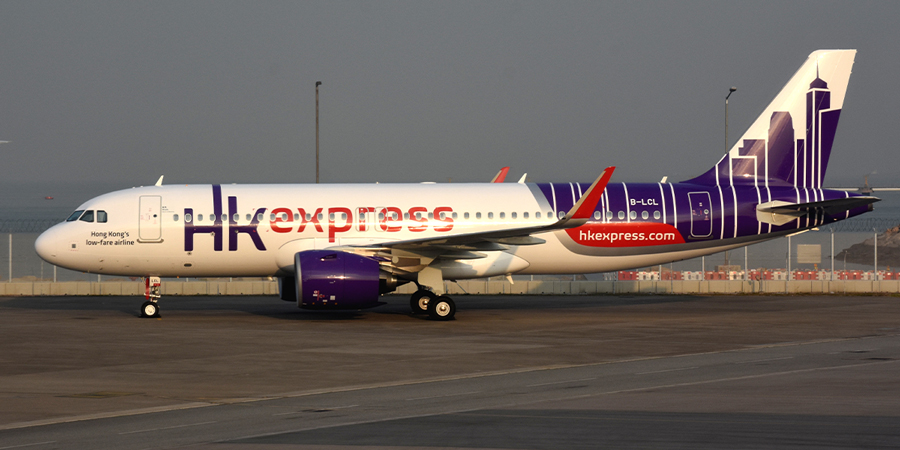
CC BY-SA 2.0 Deed | Attribution-ShareAlike 2.0 Generic
| Carrier | Headquarters | Ancillary $ Per Passenger |
| Hong Kong Express | Hong Kong | $52.52 |
In the number 10 slot is Hong Kong’s sole LLC, Hong Kong Express. Fully owned by Cathay Pacific, HK Express, as it’s commonly known, operated routes to 20 destinations in 2022, with cities like Taipei, Kaohsiung and Hanoi on the list. The carrier—which saw an unbelievable 3,800% increase in traffic between 2021 and 2022—pulled in $16.5 million from ancillary fees last year, averaging $52.52 per passenger, as reported by IdeaWorks.
9.
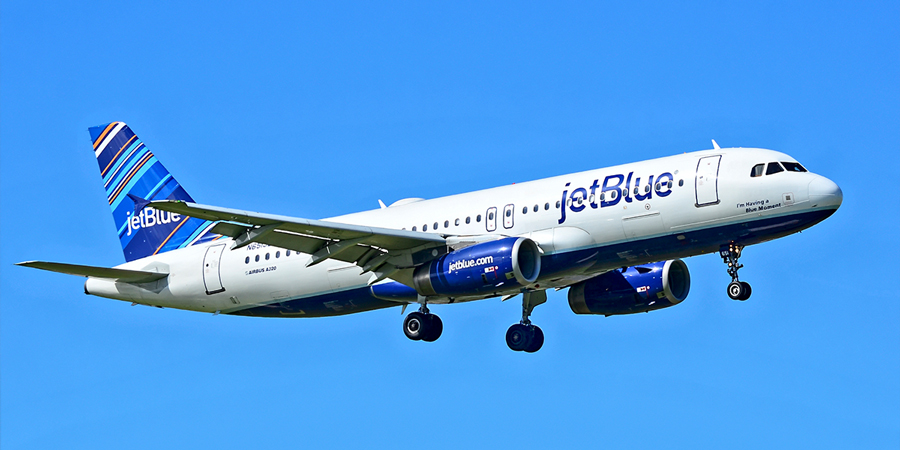
CC BY-SA 2.0 Deed | Attribution-ShareAlike 2.0 Generic
| Carrier | Headquarters | Ancillary $ Per Passenger |
| jetBlue | Long Island City, NY | $53.24 |
JetBlue Vacation Products, which includes JetBlue Vacations and the Paisly booking platform, recorded earnings of roughly $100 million before taxes last year. In September 2022, jetBlue launched Troupe, designed for group vacation planning. The TrueBlue program also saw a 50% spike in membership in 2022, coupled with a 40% increase in its co-branded credit card accounts.
8.

CC BY-SA 2.0 Deed | Attribution-ShareAlike 2.0 Generic
| Carrier | Headquarters | Ancillary $ Per Passenger |
| United | Chicago | $54.62 |
In 2022, United Airlines generated the second most ancillary revenues of any carrier in the world following Delta Air Lines. Passengers shelled out nearly $8 billion on top of airfare, or $54.62 per passenger on average. Last year saw a rise in United Club memberships and lounge passes, and expansions in their lounge spaces in various airports.
7.
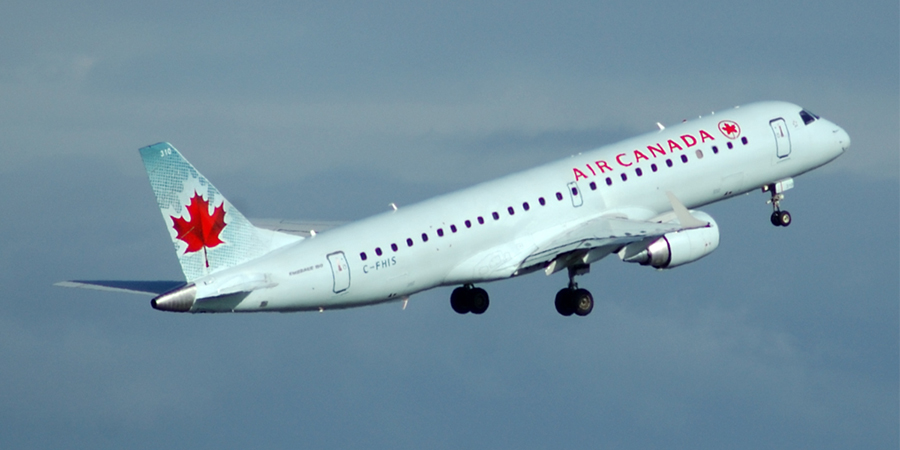
CC BY-NC 2.0 Deed | Attribution-NonCommercial 2.0 Generic
| Carrier | Headquarters | Ancillary $ Per Passenger |
| Air Canada | Montreal | $54.65 |
As Canada’s largest airline, Air Canada includes Air Canada Rouge, Air Canada Vacations and Aeroplan. In 2022, the airline revamped its Maple Leaf Lounge with a modern buffet and extended café offerings, and it also introduced new Priority Access Lanes. Air Canada raked in approximately $2 billion in non-ticket fees last year, averaging $54.65 per passenger.
6.
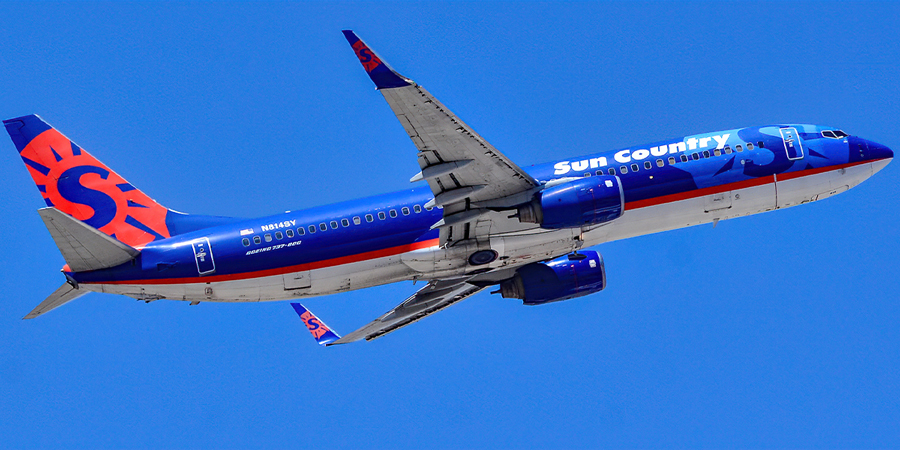
CC BY-SA 2.0 Deed | Attribution-ShareAlike 2.0 Generic
| Carrier | Headquarters | Ancillary $ Per Passenger |
| Sun Country | Minneapolis | $56.74 |
Sun Country pocketed $204 million in ancillary revenues last year, averaging $56.74 per passenger. The ultra-low-cost carrier (ULCC) also reported record-breaking revenue of $294 million in the first quarter of 2023.
5.

CC BY-SA 2.0 Deed | Attribution-ShareAlike 2.0 Generic
| Carrier | Headquarters | Ancillary $ Per Passenger |
| Frontier | Denver | $66.24 |
Denver-based Frontier Airlines collected around $1.7 billion in 2022, or $66.24 per passenger on average. Frontier was one of only two carriers whose ancillary fees represented over 50% of total revenues in 2022, the other being Spirit Airlines. The airline introduced the Go Wild All-You-Can-Fly Pass, which charges one price for unlimited flights.
4.

CC BY-SA 2.0 Deed | Attribution-ShareAlike 2.0 Generic
| Carrier | Headquarters | Ancillary $ Per Passenger |
| Spirit | Miramar, FL | $67.61 |
Each passenger aboard a Spirit flight paid an extra $67.61 on average in 2022, putting the low-cost carrier in the number one spot in terms of ancillary revenues as a percentage of total revenue. Despite discussions with Frontier, Spirit entered a merger agreement with JetBlue, which faced challenges when the Department of Transportation (DOT) sought legal action to prevent it in March 2023.
3.
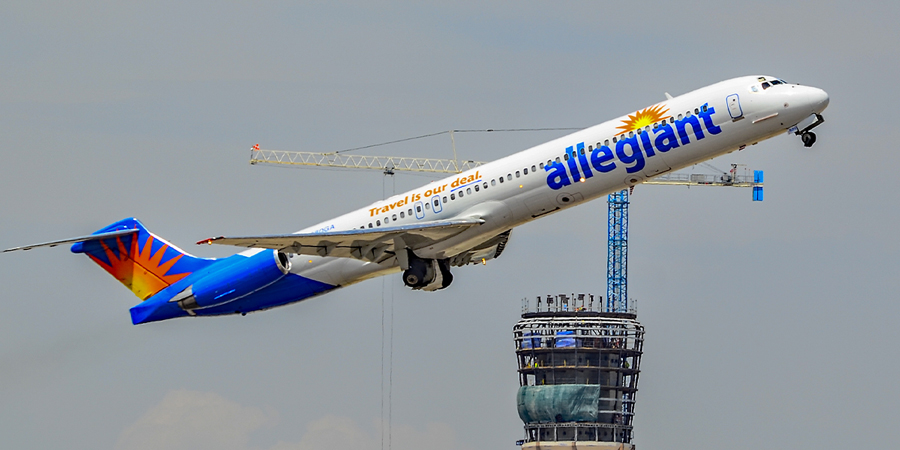
CC BY-SA 2.0 Deed | Attribution-ShareAlike 2.0 Generic
| Carrier | Headquarters | Ancillary $ Per Passenger |
| Allegiant | Las Vegas | $67.74 |
Almost half of Allegiant’s total 2022 revenue came from ancillary fees, according to IdeaWorks. Its Allways Rewards co-branded credit card added 150,000 new users last year, culminating in over 410,000 cardholders by year’s end. The program generated $103 million in revenue, averaging $307 per account.
2.

CC BY-SA 2.0 Deed | Attribution-ShareAlike 2.0 Generic
| Carrier | Headquarters | Ancillary $ Per Passenger |
| Qantas Airways | Mascot, Australia | $73.23 |
Qantas Airways, Australia’s flagship carrier, collected $73.23 per passenger in ancillary fees. In 2022, Qantas Loyalty acquired a 51% stake in TripADeal, further expanding its reach in the travel industry. An additional 1 million members also joined its frequent flyer program during the same year.
1.
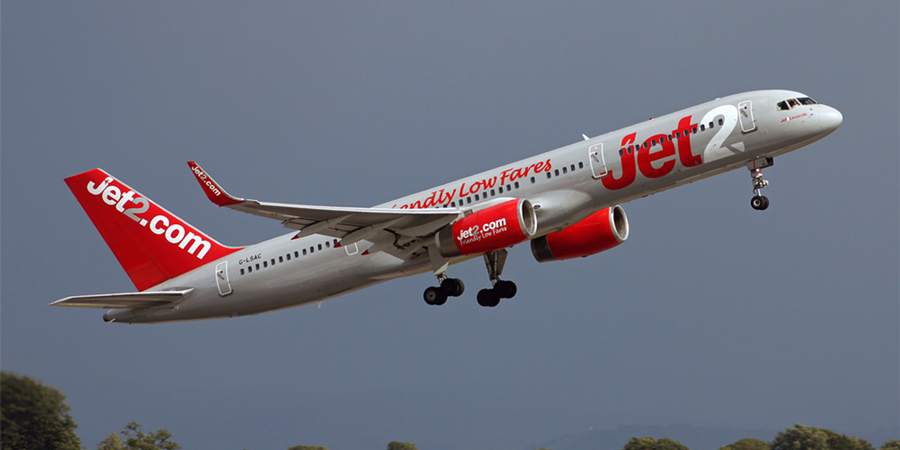
CC BY-NC 2.0 Deed | Attribution-NonCommercial 2.0 Generic
| Carrier | Headquarters | Ancillary $ Per Passenger |
| Jet2.com | Yeadon, U.K. | $84.72 |
In the number one spot is Jet2.com, the United Kingdom’s third-largest carrier, flying from 11 U.K. airports to over 65 European destinations. During fiscal 2023, the airline rolled out new services, including VIBE, granting passengers special access to certain entertainment venues, and Express Transfers, which gives customers a preferred drop off on holiday arrival transfers.
JETS, the Pure-Play Airlines ETF
A number of the airlines listed can be found in the U.S. Global Jets ETF (JETS), a pure-play airline industry exchange-traded fund (ETF).
We like to call JETS a smart-beta 2.0 ETF. This means it tracks an index like most ETFs, but it also shares some characteristics investors might expect to see in an active fund. For instance, JETS is not strictly weighted by market cap weighted, unlike most other ETFs. Instead, it uses a number of quantitative factors to screen for and weight its constituents. It also rebalances and reconstitutes every quarter.
To see the entire list of holdings in JETS, click here.
All opinions expressed and data provided are subject to change without notice. Some of these opinions may not be appropriate to every investor.
Please carefully consider a fund’s investment objectives, risks, charges, and expenses. For this and other important information, obtain a statutory and summary prospectus for JETS by clicking here. Read it carefully before investing.
Investing involves risk, including the possible loss of principal. Shares of any ETF are bought and sold at market price (not NAV), may trade at a discount or premium to NAV and are not individually redeemed from the funds. Brokerage commissions will reduce returns.
Because the funds concentrate their investments in specific industries, the funds may be subject to greater risks and fluctuations than a portfolio representing a broader range of industries. The funds are non-diversified, meaning they may concentrate more of their assets in a smaller number of issuers than diversified funds.
The funds invest in foreign securities which involve greater volatility and political, economic and currency risks and differences in accounting methods. These risks are greater for investments in emerging markets. The funds may invest in the securities of smaller-capitalization companies, which may be more volatile than funds that invest in larger, more established companies.
The performance of the funds may diverge from that of the index. Because the funds may employ a representative sampling strategy and may also invest in securities that are not included in the index, the funds may experience tracking error to a greater extent than funds that seek to replicate an index. The funds are not actively managed and may be affected by a general decline in market segments related to the index.
Airline Companies may be adversely affected by a downturn in economic conditions that can result in decreased demand for air travel and may also be significantly affected by changes in fuel prices, labor relations and insurance costs.
Fund holdings and allocations are subject to change at any time. Click to view fund holdings for JETS.
Distributed by Quasar Distributors, LLC. U.S. Global Investors is the investment adviser to JETS.
